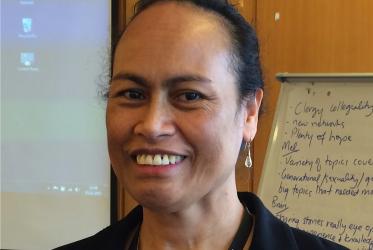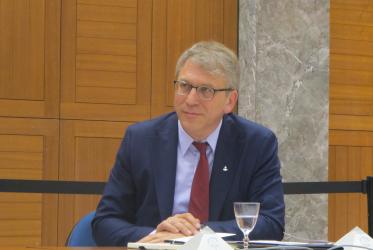Displaying 141 - 160 of 185
Church challenge: Welcoming "strangers" in a climate of fear
18 November 2015
L’Église au défi: Accueillir des «étrangers» dans un climat de peur
18 November 2015
U.S. Black Methodists release documents to help confront racism
23 September 2015
Reclaiming our humanity
23 June 2015
Il faut reprendre possession de notre humanité
23 June 2015
WCC condemns mass killing in Charleston
18 June 2015





